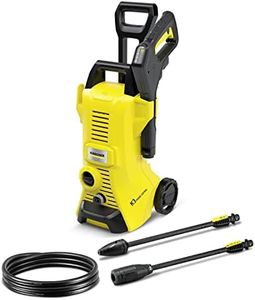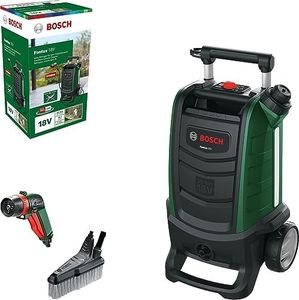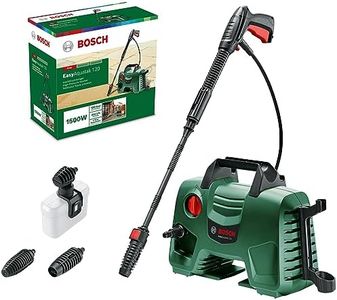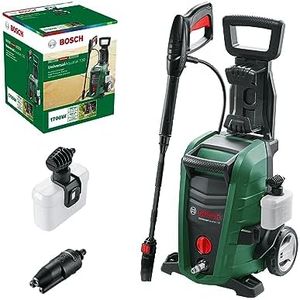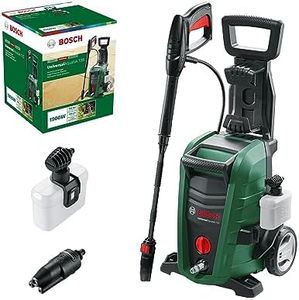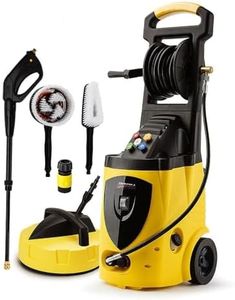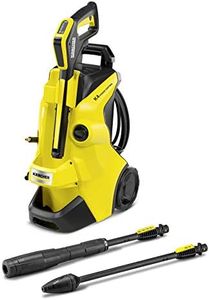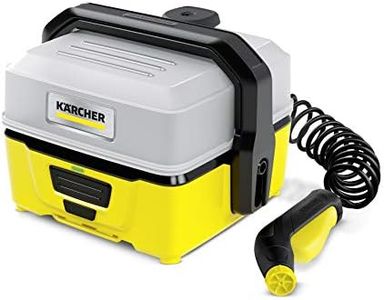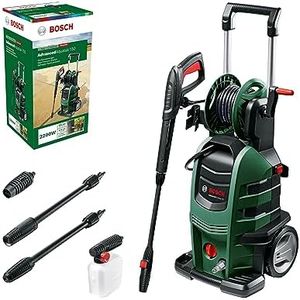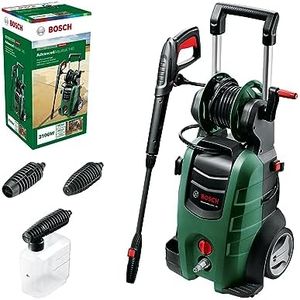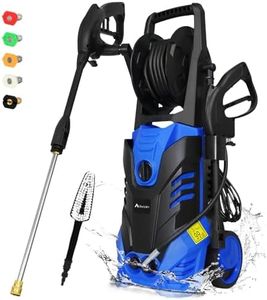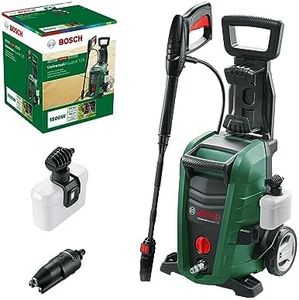We Use CookiesWe use cookies to enhance the security, performance,
functionality and for analytical and promotional activities. By continuing to browse this site you
are agreeing to our privacy policy
10 Best Power Washers
From leading brands and best sellers available on the web.By clicking on a link to a third party's website, log data is shared with that third party.
Buying Guide for the Best Power Washers
Choosing the right power washer can make cleaning your driveway, car, patio, or even outdoor furniture much more efficient and effective. Power washers, also known as pressure washers, use high-pressure water to remove dirt, grime, and stains quickly. Because there are several types and features to consider, it’s important to think about what you’ll be cleaning and how often you plan to use the washer. Understanding the main specifications can help you select a model that fits your cleaning needs without being too overwhelming or underpowered.Pressure Rating (PSI)PSI stands for pounds per square inch and tells you how forceful the water stream will be. The higher the PSI, the stronger the cleaning power. Light tasks like washing cars or outdoor furniture usually need 1,300 to 2,000 PSI, making low to mid-range values a safe bet for most home use. Medium-duty cleaning like decks, patios, or driveways might need 2,000 to 2,800 PSI, offering a balance between power and versatility. Heavy-duty cleaning, like paint stripping or cleaning large areas, may require PSI values above 2,800. If you plan to use the washer for lighter jobs, lower PSI is gentler and safer for surfaces, while higher PSI should be reserved for tougher dirt and stains.
Water Flow Rate (GPM)GPM means gallons per minute and measures how much water the washer uses. This tells you how quickly it can clean. Lower GPM (around 1 to 1.5) is typical for small, occasional cleaning jobs and is often found on electric models designed for household use. Medium GPM (1.5 to 2.5) lets you cover more area faster and is suitable for most outdoor cleaning projects. High GPM (above 2.5) is great for large, stubbornly dirty surfaces, making the work go quicker but using more water. Consider your normal cleaning size and frequency: a higher GPM will get bigger jobs done faster, while a lower one reduces water use for smaller tasks.
Power SourcePower washers come in electric and gas-powered versions. Electric washers are quieter, lighter, and require less maintenance. They’re ideal for small to medium household tasks and are best where a power outlet is accessible. Gas models offer more power and flexibility, often needed for bigger or more remote cleaning jobs, but they are heavier, noisier, and require fuel and regular maintenance. If portability or tackling large outdoor jobs is key, gas might be preferable. For ease-of-use and typical home projects, electric is usually sufficient.
Nozzle TypesNozzles determine the shape and intensity of the water spray. Interchangeable nozzles are usually color-coded and range from narrow, powerful streams (good for tough stains or distant surfaces) to wider, gentler sprays (better for delicate or broad surfaces). Some washers have adjustable nozzles or include multiple tips. Using the right nozzle helps avoid damage and improves efficiency. Think about what you’ll clean: hard surfaces might need narrower nozzles, while for cars or windows, wider or specialty nozzles are safer.
Portability and StorageWeight, wheel size, handle design, and cord or hose management all affect how easily you can move and store your power washer. Lighter, more compact models are better if you’re short on storage space or plan to carry the unit around your property. Larger, heavier duty models may have big wheels to help with mobility but can be bulkier to store. Think about your storage area and whether you’ll need to move the washer around a lot.
Hose Length and QualityThe length and toughness of the hose impacts how convenient it is to reach all areas you want to clean without having to reposition the base unit. Shorter hoses (under 20 feet) are easier to manage but offer less reach, while longer hoses (over 25 feet) allow for more flexibility around larger spaces. A stronger hose can withstand higher pressure and last longer, especially if you use the unit often or in rough conditions. If you have a large cleaning area, opt for a longer, more durable hose so you’re not constantly moving the main unit.
Detergent Tanks or Soap ApplicatorsSome power washers come with built-in tanks or external attachments to add soap or detergent while you clean. This feature is especially helpful for cars, siding, or other surfaces that benefit from a cleaning solution. If you plan to clean greasy, oily, or very dirty surfaces often, a detergent tank adds convenience. For simple dirt rinsing, it may not be essential.

